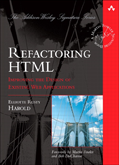Why Pair Programming Works
Tuesday, June 30th, 2009Pair programming is like magic in more ways than one. It dramatically improves programmer productivity and reduces bug count, and yet it does so through a technique that’s completely counter-intuitive. You can’t help but think that there’s some trick yet to be exposed; that pair programming is just slight of hand. In this article, I will endeavor to pull back the curtain and reveal the secrets of the pair programming magicians.
Specifically, I identify six reasons pair programming succeeds:
- Continuous Code Review
- Fewer blockages
- Masking distractions
- Guaranteed focus
- Multiple points of view
- Reduced training cost and time
